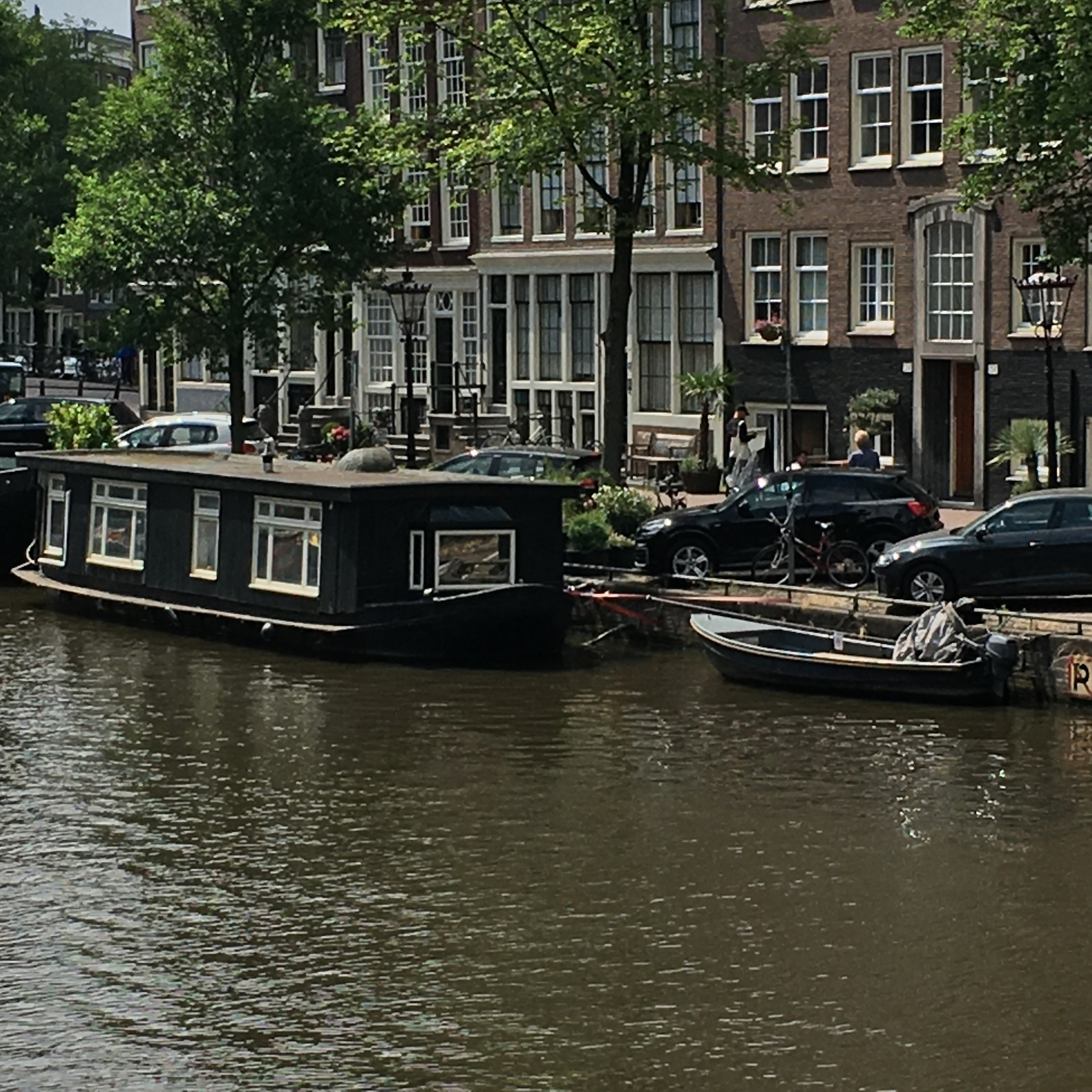Dieser Beitrag enthält Werbung – Advertising
Grijpstra entered the room and sighed. He saw the corpse and it moved, exactly as he had expected. It would be the draft, of course, all phenomena can be explained, but the slowly ghastly movement chilled his spine. De Gier had now come in as well and watched silently. He noticed the small bare feet with their neat toes pointed at the floor. His gaze wandered upward and recorded the protruding tongue and the wide open bulging blue eyes. A small corpse that had belonged to a living man. A little over five feet. A thin man, well dressed in khaki trousers of good cloth, nicely ironed, and a freshly laundered striped shirt. …
Day after day nothing to do but to drive around and look around a little and now suddenly two corpses in one evening. They had found the first corpse early that evening, or rather, they had seen a body change into a corpse. The woman was still alive when they found her, naked and bleeding in the shabby whorehouse at the canal. A knife in her belly. She died in the doctor’s arms: he had come immediately answering de Gier’s emergency call. The woman had been able to describe her killer while she kept her hands pressed against her body in a vain attempt to stop both pain and blood. An aging whore, a reasonably sweet person. De Gier had found the young man under a tree, right opposite the whorehouse. The boy was resting his back against an old elm tree and was staring into the canal’s murky water. The knife was still in his hand. A pleasant boy, but not to be trusted with knives and middle-aged women who reminded him of his mother. …
The dead prostitute hadn’t taken much of their time and Grijpstra and de Gier had gone out for another ride hoping to be able to fill the rest of their night’s shift with peacefully ambling about and stopping in a quiet café somewhere for a cup of coffee. And now this.
from: Outsider in Amsterdam
Muddy Waters in an Old City
I learnt and read about Grijpstra and de Gier in the 70s and 80s. At the same time Martin Beck roamed Stockholm and Sweden to solve crime cases in a deeply socially devoted society. Also Pepe Carvalho was busy in Barcelona as a PI fishing around in all social classes. Il Commissario Montalbano of Sicily at this time wasn’t more than some sparkling idea in the head of his creator – if at all (in good company with Kostas Charitos in Athens).
American heroes like Philip Marlowe, of course somewhat earlier in business, and Lew Archer focused on the dirty linen of well-off people when having clash encounters with the other part of the society in Los Angeles and California. Grave Digger Jones and Coffin Ed Johnson more likely fit in because they deal with the underdogs of New York.
Only in Europe there was this new idea of creating detectives having a life of their own, affected by their difficult and miserable work, who muckrake the bottom of any crime scene and all people involved, just to learn the truth – not necessarily serving justice. Crime became a commonplace affair, just happening or maybe planned out of actually long buried hate or revenge, however, always as if something coming about next door.
So Grijpstra and de Gier form part of a wave …
Grijpstra is sedate at a leisurely pace and loves eating. He is married with three children, but unhappy in his marriage. So the marriage will end and Grijpstra will live on his own in a simple apartment with simple solution around him like using a sleeping bag.
De Gier is handsome and a womanizer. He lives in a small apartment with his tomcat and enjoys his life. every now and then a woman infiltrates this idyll, but not staying in the long run.
Together they roam Amsterdam. There are the canals and the old patrician houses, there are the whores and their pimps. There are also upper class whores ending up as bloody corpses as the cheap whores. There are lots of amateur criminals, wannabe criminals, people just in need of money and compliant with bending law and order – a little. It’s the 70s with the hippies and sex and drugs – so drugs always play an important role.
Not to be forgotten are the professional crime gangs, organized crime having set up their network all over Amsterdam, the Netherlands, Europe, the world … Every now and then also some well planned undertaking goes wrong and there is a lot of collateral damage waiting to be cleared by the police.
Grijpstra and de Gier have to stomach everything you can imagine during the nights in Amsterdam. In the headquarters they share an office – with a drum set. The drum set was left in this office once, long ago, and forgotten. Grijpstra likes to use it with growing ease. De Gier looked for his flute, found it, started playing and that’s why both enjoy their time in their office. Sometimes.
Then there is the commissaris. He is fully convinced of the capabilities and working ethic of both his officers. Although on top of headquarters – or almost – he likes to give special cases to Grijpstra and de Gier which often turn out to be tricky and murky. The commissaris has a personal history back into WWII which cares for rheumatic pains nowadays. Nevertheless he won’t leave his job and he always sticks to the truth being incorruptible.
As a whole Grijpstra and de Gier make their way through the series and leave their footprints. At the end they leave the police corps and work as PI. It’s worth following their adventures even today, about 30-40 years later.


